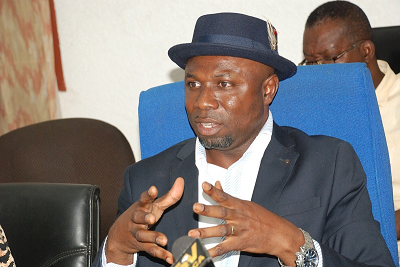
In-service teachers to pay for licence
All in-service teachers will be required to pay GH¢200 each to secure their teacher professional licences, the National Teaching Council (NTC) has said.
They will also pay a renewal fee of GH¢100 every two years.
However, the teacher unions are kicking against the move, insisting that the employer, the Ghana Education Service (GES), should bear the cost or "heavily" subsidise it.
Response to concerns
In a response, the Executive Secretary of the NTC, Mr Christian Addai-Poku, assured the teacher unions that there was still room for consultations and that if the teacher unions felt strongly about the fee for the acquisition for the licence, they could submit their proposal, while the engagement and sensitisation went on.
He said since it had been established and all agreed that a teacher professional licence was important, anything that needed to be done to arrive at a consensus, would be done.
Mr Addai-Poku said licensing in every profession came at a cost and since teachers were major stakeholders as far as the licensing process was concerned, stakeholders would look into their concerns.
Fees explained
Speaking on the licence, Mr Addai-Poku explained that the licence, once issued, was valid for two years.
In-service teachers refer to teachers who were employed before September 2018 and who have successfully completed professional training.
Preparation
Mr Addai-Poku called on such teachers to commence the process for the acquisition of their professional licence.
“They are to log on to www.ntc.gov.gh and upload some required details. The portal will be opened upon publication in the dailies,” he said.
Mr Addai-Poku was speaking at a sensitisation programme for in-service teachers on teacher professionalism at St Mary’s Senior High School in Accra.
He took the participants through the National Teachers Standards (NTS), the Licensing Process for In-Service Teachers and the Continuous Professional Development (CPD).
Standards
The National Teachers’ Standards is the first-ever collectively agreed standards to guide teacher preparation and practice in the country.
Speaking on the standards, he explained that they had been developed as a professional tool to guide teacher education and training.
“They are codified and documented materials that present what teachers should know, value and do,” Mr Addai-Poku said.
Continuous Professional Development
Once licensed, teachers will be required to attend periodic workshops and seminars to update their knowledge about trends and policy issues in the profession, a measure known as continuous professional development.
Mr Addai-Poku explained that the CPD was the means by which teachers were required to maintain and enhance their knowledge, skills and experiences gained as they worked, apart from their initial teacher training.
“It is a record of what teachers experience, learn and apply. The CPD activities include building of portfolio, in-service training and mentoring.
“Thus, CPD will involve training and education programmes organised within or outside the school environment which NTC approves as being relevant to the teaching profession and meeting prescribed standards,” he explained.
Mr Addai-Poku further explained that the rationale behind CPD was to provide guidance for teachers to continue to improve their competencies to maintain the integrity of the teaching profession.
He said it was an offence to recruit a teacher who had no licence, keep in your school a teacher whose licence had expired or for a person to practise as a teacher when not in good standing.
Sensitisation
The Headmistress of St. Mary’s Senior High School, Ms Grace Mansa Eshun, was grateful to the NTC officials for such an education.
She charged the NTC to undertake such sensitisation on a regular basis to keep the teachers abreast of ongoing reforms.
Ms Eshun further stated that teacher professionalisation was long overdue and that teachers should embrace it in order that Ghanaian teachers would go by the new standards which intended to make them globally acceptable.
NAGRAT
For his part, the President of NAGRAT, Mr Eric Carbonu, expressed concern about the amount to be charged for the licence.
He assured the teachers that teacher unions would take up the matter with their employer, the GES, to ensure that it paid for their employees or at “least heavily subsidise to make it affordable to teachers.”
